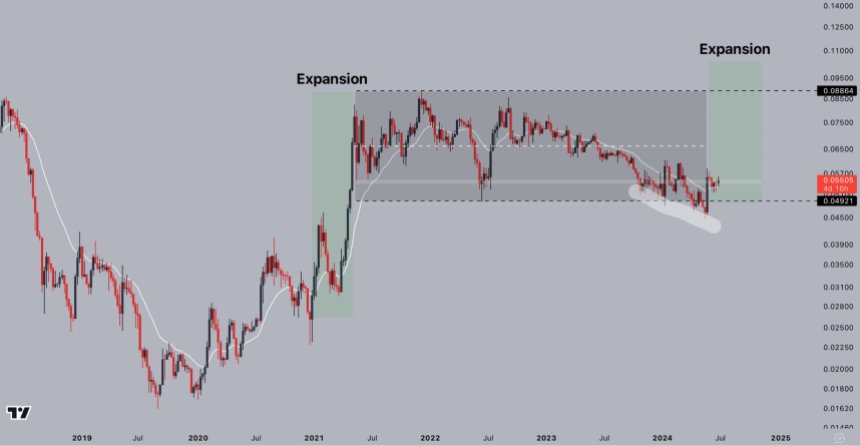Ethereum Investors Take On Sky-High Leverage: Brace For Volatile Storm?
Data shows the investors in the Ethereum derivatives market have been taking on very high leverage recently, something that could lead to volatility for the asset.
Ethereum Estimated Leverage Ratio Has Been At Extreme Levels Recently
As pointed out by an analyst in a CryptoQuant Quicktake post, the ETH Estimated Leverage Ratio has been on the up recently. The “Estimated Leverage Ratio” (ELR) refers to an indicator that keeps track of the ratio between the Ethereum Open Interest and Exchange Reserve.
The former of these, the Open Interest, here is a measure of the total amount of derivatives positions related to ETH that are currently open on all centralized exchanges.
The second metric, the Exchange Reserve, naturally tells us about the total number of tokens of the cryptocurrency that are sitting in wallets attached to all exchanges.
When the ELR’s value rises, it means that the Open Interest is increasing at a faster rate than the Exchange Reserve. Such a trend implies that investors are opting for a higher amount of leverage on average. On the other hand, a decline in the indicator suggests the derivatives market users are moving towards a lower amount of risk as they are deleveraging their positions.
Now, here is a chart that shows the trend in the Ethereum ELR over the last few years:

As displayed in the above graph, the Ethereum ELR has observed some steep growth recently. This sudden sharp uptrend in the asset came about as news around the spot exchange-traded funds (ETFs) gained traction in the buildup to the approval.
The cryptocurrency’s price also registered a sharp rally during the same time. Thus, the conditions were perfect for attracting fresh speculation related to the coin, so it’s not surprising that the indicator’s value saw a spike.
The rise has also continued beyond the approval of the ETFs, but the price has fallen to a sideways movement. It would appear that the investors are willing to take even higher risk despite this consolidation, trying to bet big on where Ethereum could escape from here.
Historically, a high value of the leverage ratio has meant a higher volatility for the asset’s price. This is because mass liquidation events can become more probable to take place when the investors are sitting in overleveraged positions.
With ETH trading sideways recently and all these positions building up, it might take only one break in either direction before a lot of these positions come crashing down. A large number of such liquidations happening at once would only fuel further into the price move that caused them, thus amplifying it.
It now remains to be seen how the Ethereum price develops in the coming days and if a volatile move is waiting for it given the trend in the ELR.
ETH Price
May has been a good time for Ethereum investors as the asset is looking to close the month with positive returns of more than 18%.

